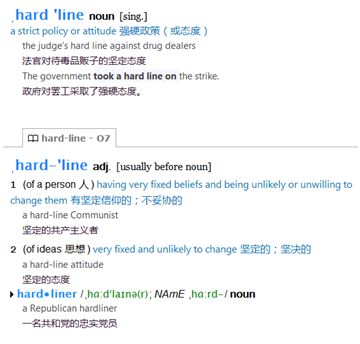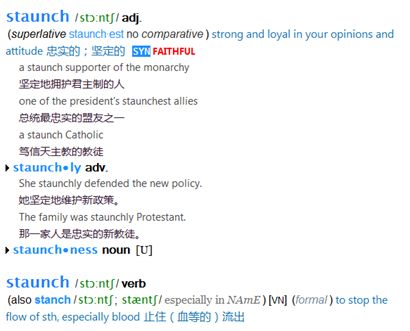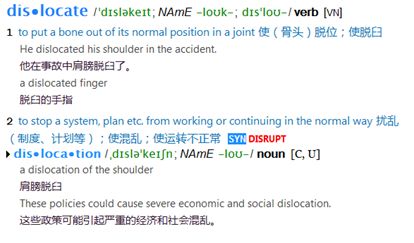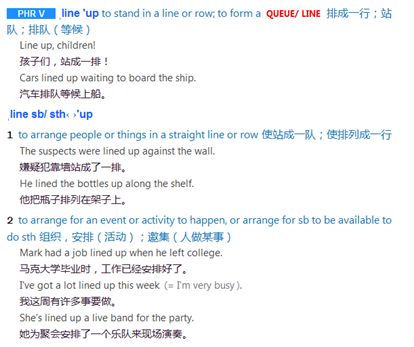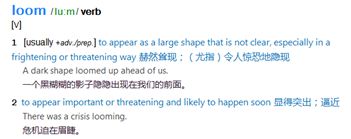本期原文选自The Economist 2016-10-08的Leaders板块文章The road to Brexit,释义来自牛津高阶七版、、元照英美法词典、Lexisnexis法律词典、维基百科等资源。如果您也在学习The Economist,欢迎订阅我的文集The Economist,一起学习交流。
The road to Brexit
Britain’s prime minister must resist her party’s dangerous instincts
The destination was decided in June, by simple majority: Britain is leaving the European Union. The journey, however, will be complex and perilous, beset【1】 by wrong turnings【2】, chicanes【3】 and elephant traps【4】.
【1】beset 困扰,威胁
【2】turning 转弯处,岔道口
【3】chicane 双急转弯
【4】elephant trap国际象棋中一种常见的取得先期优势的方法(http://en.wikipedia.org/wiki/Elephant_Trap)
With 64m Britons in the back seat【5】, perhaps that is why Theresa May has avoided talking about the road ahead. But at the Conservative Party conference this week the new prime minister could delay no longer. In a speech that thrilled party activists, she declared that she will invoke Article 50 of the EU treaty by the end of March, triggering a two-year countdown【6】 that should see Britain leave the union in early 2019. She also hinted that she would be prepared to steer Britain towards a harder sort of Brexit, involving a wide separation of labour, product and financial markets.
Mrs May is at risk of putting her party before her country—with grave consequences. Brexit will determine Britain’s fortunes in the decades to come. If it is to be done at all, it must be done right.
【5】back seat 后座,(比喻)无关紧要的地位;另一个类似的词backbencher后座议员;后排议员:在英国议会下议院中政府要员与反对党的重要人物坐前排的座位,其他地位较低的议员只能坐后排的座位(该释义来自元照英美法词典)。
【6】countdown倒计时
Hard, soft or half-baked【7】?
Mrs May faces an inevitable tension. Domestically, if she is not to be overwhelmed by the politics of Europe, as so many Tory prime ministers have been before her, she needs to convince those who voted to leave that their victory will be honoured. That is why her speech conveyed urgency and, when it came to immigration, sovereignty and the jurisdiction of the European court in Luxembourg, she took a hard line【8】.
【7】half-baked 本义是半熟的,引申为考虑不周的,未完成的;half-baked building 烂尾楼
【8】hard line 强硬政策/态度(n);坚定的,有坚定信仰的,近义词staunch(忠实的,坚定的);hard liner (n)
hard-line用作形容词时,近义词为staunch
In Europe, however, this domestic rhetoric will impede Mrs May’s task of negotiating the best possible form of Brexit. To maximise her bargaining power【9】, Mrs May needs time. To get the best deal, she needs to be flexible on immigration.
【9】bargaining power 议价能力,源于一方可能有的资源和有利条件。例如存在具吸引力的交易选择、财务资源、具备一方可有的良好的洽商技巧及地位(Lexisnexis法律词典)。
The centrepiece【10】 of the deal ought to be to secure maximum access to Europe’s single market【11】. Brexiteers【12】 say that, once outside, Britain would eventually negotiate low or no tariffs on its trade with the EU. Yet, even if it did, tariffs are less than half the problem. Without harmonised regulations, British firms will discover that their products do not meet European requirements, and vice versa. And it is unlikely that a trade deal between Britain and the EU would cover services, including the financial sort that are among Britain’s biggest exports. A study by the Treasury before the referendum estimated that the hit to GDP within two years of Brexit would be nearly twice as large if Britain left the single market than if it remained a member.
【10】centrepiece 本义是桌子中央的装饰品,引申义为最重要的事项
【11】single market 单一市场的设想源于1957年的《罗马条约》。当时,欧洲领导人提出要消除“商品、人员、服务和资本”的自由流动障碍。单一市场的理念构成欧盟的贸易基础,写入了1986年单一欧洲法案(Single European Act 1986)。单一市场于1993年1月生效。
【12】Brexiteer或brexiter 主张英国脱欧的人,由Brexit衍生而来;Brexit是Britain和exit的组合,运用了拼缀构词法或混成构词法(Blending),将两个词的某一部分合并(例如net+ citizen = netizen 网民),或在一个词的基础上加上另一个词的一部分构成新的单词(例如electronic + mail = email 电子邮件),以这种方法形成的新词叫做拼缀词(blend)。
Mrs May seems to want to carve out【13】 a special deal with the EU, in which Britain limits immigration and determines product standards—on, say, food-labelling—while still operating fully in the single market. Perhaps the negotiations will show that this is possible. However, the signs are that she is overestimating the EU’s willingness to give ground【14】. Each country has a veto over Britain’s status (see article). On almost every issue, from immigration to financial services, at least one of them will be reluctant to surrender its advantages.
【13】carve (sth) out 努力获得,开拓;carve 雕刻
【14】give/lose ground (to sb/sth) 退让,失利
If that means Mrs May must give ground on immigration, remember that such “concessions” actually benefit Britain. The supply of workers and students from the EU has helped Britain grow faster than any other member state in recent years. To avoid suffocating industry, ministers have already indicated that they may let in financial-services employees, as well as seasonal agricultural workers. There are sure to be more exceptions as bottlenecks emerge.
The second ingredient of a good Brexit is a sensible transition to the new regime—especially if Britain is about to walk away from the single market. The bureaucracy and cost of a sudden imposition of tariffs and non-tariff barriers would lead to a brutal dislocation【15】. Separation from the EU will involve divvying up【16】 EU-owned assets, pensions and much else. Everything from fishing rights to aircraft-landing slots【17】 are agreed on at an EU level; these rules must be redrafted and re-regulated.
【15】dislocation 本义是脱臼,骨头脱位,引申为扰乱制度、计划等;dislocate (v)
【16】divvy sth up 分摊,分享
【17】 aircraft-landing slot 飞机降落时间表;slot 本义是槽缝,还可指名单、广播或日程安排中的时间或位置。
Amid the world’s most complex divorce, Britain’s diplomats also have another vital task. Through its membership of the EU, Britain is a member of the World Trade Organisation (WTO) and party to free-trade deals with 53 other countries. When it leaves, it will lose all that. So Britain must urgently prepare to rejoin the WTO as an individual country—which, again, requires the consent of every other member.
Mrs May seemed to acknowledge the benefits of a smooth transition this week. Her proposed “Great Repeal Bill”【18】, which will get rid of all existing EU law from the statute book, will in fact merely translate it into British law, to be chipped away later at leisure if desired. She should likewise negotiate an interim trade deal—through temporary membership of the European Economic Area, say, of which Norway is part. This would mean paying into the EU budget and accepting free movement but, in return, Britain could take as long as it needs to line up【19】 WTO accession and trade agreements with the EU and other countries, while still under the shelter of the single market.
【18】Great Repeal Bill 《大废除法案》,其将《1972年欧洲共同体法》从英国法令全书(statute book)中删除。
【19】line sb/sth up 使排成一行,组织、安排活动;line up排队,站成一排
Ardent Brexiteers worry that, ensconced in such a halfway house, Britain would stay put【20】 for ever. That is indeed a possibility, and there is no reason it should not be: with half the population having voted to Remain and many of those who voted to Leave reluctant to quit the single market, a majority might favour such a “soft” Brexit.
【20】stay put 留在原地不动
Open all hours
The final ingredient of the approach Mrs May put forward was her broad agenda to open Britain to the world beyond the EU—which she calls “Global Britain”. In theory this should entail a willingness to welcome international capital and labour, which would benefit the country whatever its relations with the EU. Sadly, the reality looks less rosy. The home secretary, Amber Rudd, this week complained that some companies were employing too many foreigners and talked about “flushing out【21】” the worst offenders. Likewise, Mrs May’s conference rhetoric was strikingly interventionist, putting the state at the heart of the economy. A flirtation【22】 with industrial policy sounds worryingly as if it is designed to keep foreigners out.
【21】flush sb/sth out (of sth) 驱赶;flush本身是冲洗,用水冲走
【22】flirtation with sth 一时介入
A Brexit of some sort looms【23】 and Mrs May will determine its course. If Britain is not to suffer a car crash, she must ignore the back-seat drivers and fix her eyes firmly on the road ahead.
【23】 loom 逼近,迫在眉睫
【小结】
在今年6月份的公投中,脱欧派以多数票获胜。以此简单投票的方式决定了英国未来:脱离欧盟。然而,脱欧之路不仅复杂多变,危险重重,还可能布满陷阱(be complex and perilous, beset by wrong turnings, chicanes and elephant traps)。也许是因为考虑到6400万英国人的想法,梅首相一直对脱欧之路避而不谈,但在本周的保守党会议中已不能再拖延。梅首相宣布三月底前将根据《欧洲联盟条约》第50 条启动脱欧之前为期两年的谈判(invoke Article 50 of the EU treaty by the end of March, triggering a two-year countdown that should see Britain leave the union (in early 2019))。她在演说中表达了在移民、主权和卢森堡欧洲法院司法管辖权方面的强硬态度(hard line)。然而,这种论调对于达成最佳脱欧方式的谈判非常不利。为了强化议价能力(bargaining power),梅首相还需要时间。要想实现最佳结果,她需要灵活对待移民问题。寻求“最大可能”的欧洲单一市场准入(maximum access to Europe’s single market)是最重要的途径(centrepiece)。脱欧派人士(Brexiteers)认为,一旦脱离欧盟,最终就能和欧盟达成较低关税或无关税。然而,即便如此,还存在比关税更重要的问题。没有协调统一的规定,英国的公司会发现它们的产品不符合欧洲要求,同样欧洲的产品也不符合英国的要求。而且,英国和欧盟之间的贸易协议不太可能涵盖金融等服务。梅首相似乎有些一厢情愿,既想限制移民,又想决定产品标准,还希望充分利用单一市场。也许这根本不可能实现。欧盟不会轻易让步(give ground)。每个欧盟成员国都有对英国的否决权。在移民、金融服务等方方面面的问题上,至少有一个成员国不愿意放弃自己的有利地位。梅首相必须在移民问题上做出让步,但这种让步实际上对英国有利。脱欧的第二种方案是合理过渡到新的体制。官僚主义、征收关税和非关税贸易壁垒会导致失序混乱(dislocation)。脱离欧洲还意味着要分享(divvying up)欧洲的财产和养老金等。捕鱼权、飞机降落时间表(aircraft-landing slots)等规则需要重新撰写、重新制定。英国还要经过每个WTO的同意重新加入WTO。梅首相似乎意识到平缓过渡的必要。她推出《大废除法案》(Great Repeal Bill),将《1972年欧洲共同体法》从英国法令全书(statute book)中删除。她还可通过欧经济区临时成员国的身份获得暂行贸易协定。通过这种模式,英国要为欧盟预算支付资金,允许非英国公民自由进出英国,但需要等待很长时间加入WTO并与欧盟和其他国家达成贸易协议。脱欧派人士担心,采取这些过渡办法,英国可能会一直停留不前(stay put)。这种结局很有可能出现,因为多数英国人可能支持“软脱欧”(“soft” Brexit)。最后一种方法是将英国向全世界开放,也就是她所说的“全球的英国”。理论上,这种方式会欢迎国际资本和劳动力,但现实看起来没那么乐观。英国内政大臣安布尔·拉德本周表示,有些公司雇佣了太多外国人,他要把这些最差劲的冒犯者驱赶出去(flushing out)。这种政策介入(flirtation)令人担忧。英国脱欧越来越近(looms),由梅首相决定脱欧路线。如果英国不想遭遇车祸,梅首相必须盯住前方,排除后座议员的干扰。
注:本文仅供学习交流之用,不代表作者观点。





